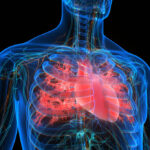- Home
- Who We Are
- Shop
- Products
- GlycoCheck
- The Science
- Study: Improving Aortic Aging with Endocalyx Pro
- Improve Vascular Health with This Supplement
- Promising Supplement for Kidney Health
- Inositol & Insulin Resistance
- PEMF Therapy Benefits
- Maximizing Mediterranean Diet Benefits
- Glycocalyx (eGC): What is Endothelial Glycocalyx?
- 9 Tips for a Healthy Aging Lifestyle
- More Science….
- News & Events
- Join
- Login

Moderators of treatment response in adults with ADHD treated with a vitamin-mineral supplement
Abstract
Background: To date there has been no research investigating moderators of response to micronutrient treatment of mental illness, specifically baseline nutrient levels.
Method: We conducted analyses of data from a randomized placebo-controlled trial (RCT) of 80 adults (.16 years) with AttentionDeficit Hyperactivity Disorder (ADHD), whereby participants were treated acutely (8 weeks) with micronutrients or placebo followed by an open-label (OL) phase of 8 weeks whereby all participants received micronutrients. To ensure that all participants had been exposed to the micronutrients for 8 weeks, only those who had adhered to the treatment protocol and completed 8 weeks on nutrients were included in the data analysis: from the group micronutrient arm, and from the group that had been randomized to the placebo group and hence had only received nutrients in the OL phase. Six outcomes were examined: change in ADHD symptoms (self/clinician), ADHD responder, Clinical Global Impression-Improvement (CGI-I), change in mood, and change in Global Assessment of Functioning (GAF). Demographic, developmental and psychiatric history, current clinical characteristics, and baseline nutrient levels were all considered as putative predictors.
Result: There were significant changes in all outcome variables after 8 weeks’ exposure to the micronutrients. Among the nutrients recorded at baseline, substantial deficiencies (27%) were only observed for vitamin D.
Science Articles
Quick Navigation
Contact Info
NuLife Sciences, Inc.
7407 Ziegler Rd
Chattanooga, TN 37421
(800) 398-9842




